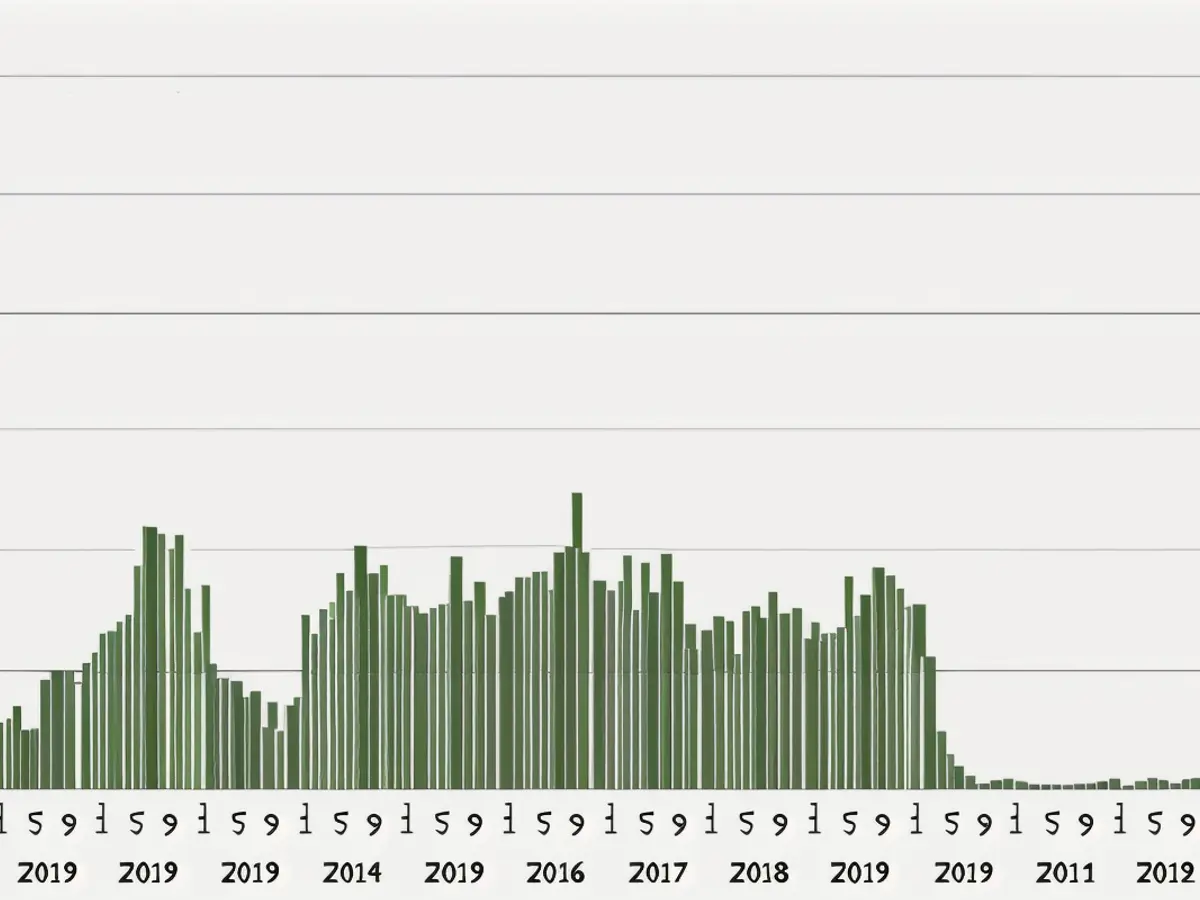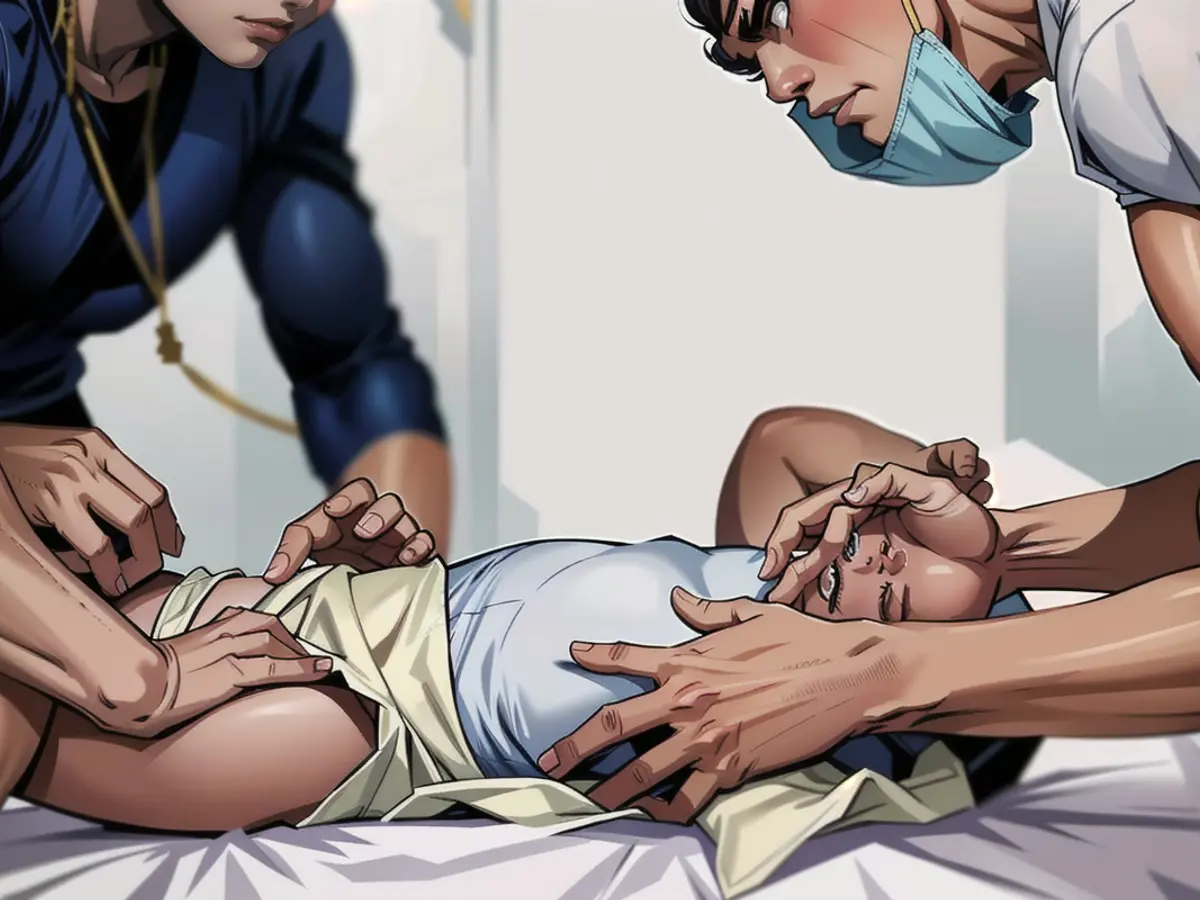Incredibly high numbers of whooping cough cases are alarming.
Whooping cough is incredibly contagious. In Europe, one single case leads to roughly five new infections on average. Notably, the UK, Netherlands, and Norway have reported significant numbers, including fatalities.
According to the European Center for Disease Prevention and Control (ECDC), the amount of whooping cough cases skyrocketed in 2023, with more than 25,000 reported, and between January and March 2024, this number increased even further, exceeding 32,000. These figures are reminiscent of 2016, with 41,026 cases, and 2019, which experienced 34,468 cases.
The ECDC noted that infants under one year of age were primarily affected in 17 European countries between January 2023 and March 2024. The greatest incident, however, was among adolescents aged 10-19. Specifically, Croatia, Denmark, and Luxembourg reported the highest occurrence in children aged 10 to 14 years, followed by those aged 15 to 19 in the Czech Republic and Slovenia. So far, there have been 19 deaths this year, including eleven infants and eight individuals over aged 60.
In Germany, whooping cough cases have also spiked in 2024. As reported by the Robert Koch Institute (RKI), there were 4180 cases registered. Likewise, in 2023, there were just 1446 whooping cough instances, while in 2019, only 98 cases of the disease were recorded. Baden-Württemberg, for example, currently has a sizable number of children below the age of 14, who are now infected. According to SWR, the state Ministry of Health confirmed this information.
In 2023, 29 cases of whooping cough were registered nationwide involving children under the age of 14. But in 2024, there have already been 484 cases in this demographic, indicating a significant increase.
The ECDC considers the risk of contracting whooping cough to be extremely high for unvaccinated or partially vaccinated infants under six months of age. This age group is particularly prone to the disease, with the highest rates of morbidity and mortality. Older children, including those between six months to 15 years old, face a moderate risk if they are unvaccinated or partially vaccinated, while those who are fully inoculated have a low risk.
According to experts, the current surge in whooping cough infections is likely due to a combination of factors, including declining immunity due to mask-wearing and lockdowns, which prevent exposure to the disease, and heightened skepticism toward vaccinations as a result of the pandemic.
As a reminder, Whooping cough (pertussis) is a common infectious illness caused by rod-shaped bacteria known as Bordetella pertussis. The incubation period is generally 7 to 20 days, and transmission of the disease occurs via airborne droplets. The infected person is contagious for approximately 5 to 6 weeks after the onset of symptoms. Antibiotics help reduce the infection phase to five days after treatment commencement.
The initial signs of whooping cough closely resemble a common cold, with symptoms such as tiredness, sore throat, and congestion. After 7 to 14 days, the bacteria multiply in the respiratory tract mucous and damage the tissue, weakening the immune system.
Children and teenagers suffering from whooping cough endure severe, spasmodic coughing episodes. The dry, staccato cough is a signature symptom of the disease. However, in adults, whooping cough often manifests differently and is thus frequently mistaken for a less severe illness, leading to a delayed diagnosis.
Astraneva Hofmann, Immune System Expert at the University of Frankfurt, explains, "Vaccinations are the best defense against whooping cough. Infants, the immunocompromised, and the elderly are especially vulnerable and should be prioritized for triple vaccinations." În the case of pregnant women or close contacts of children, vaccinations are also recommended. Immunization after vaccination or having the disease lasts an average of six to ten years. Consequently, vaccination protection must be frequently renewed.
Of course, whooping cough is not an entirely new disease, with a typical three to five-year cycle of epidemics. But the overall number of cases this year is unexpectedly high, and the demographic of those most affected has shifted significantly. These changes are widely believed to be a result of social distancing measures enforced during the pandemic and growing skepticism regarding vaccines.

Read also:
- This will change in December
- Dikes withstand water masses so far - Scholz holds out the prospect of help
- Fireworks and parties ring in 2024 - turn of the year overshadowed by conflicts
- Attacks on ships in the Red Sea: shipping companies avoid important trade route
Given the high numbers of whooping cough cases and the alarming situation, implementing widespread vaccination campaigns could help reduce the spread and prevent future epidemics. Despite the initial hesitancy towards vaccinations due to the pandemic, it's crucial to re-educate the public about the importance of vaccination in maintaining collective health. Additionally, continuing to monitor and enforce corona measures, such as mask-wearing and social distancing, in conjunction with vaccination efforts, could help mitigate the risk of epidemics and protect vulnerable populations like infants and the elderly.
Source: www.ntv.de







